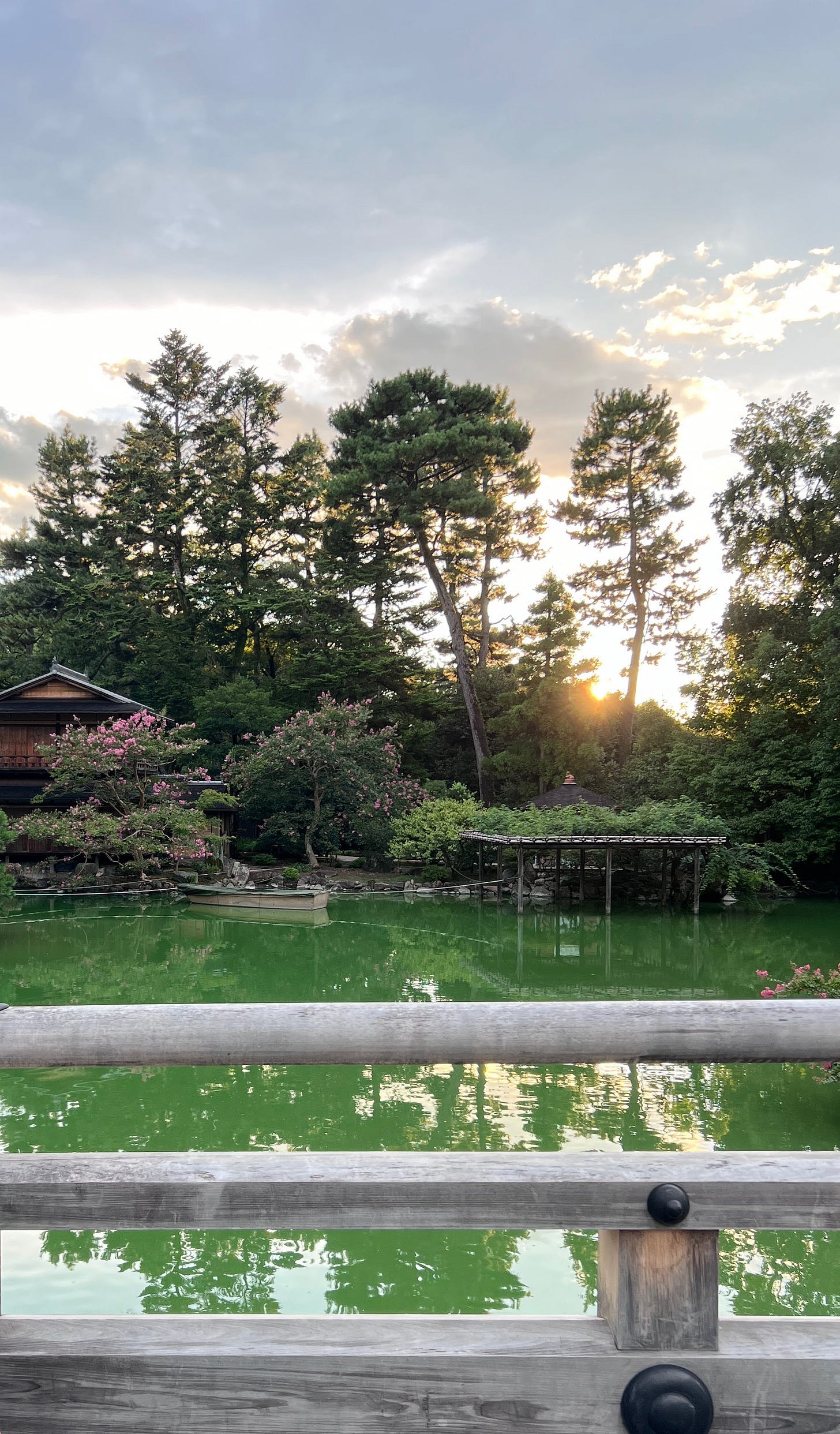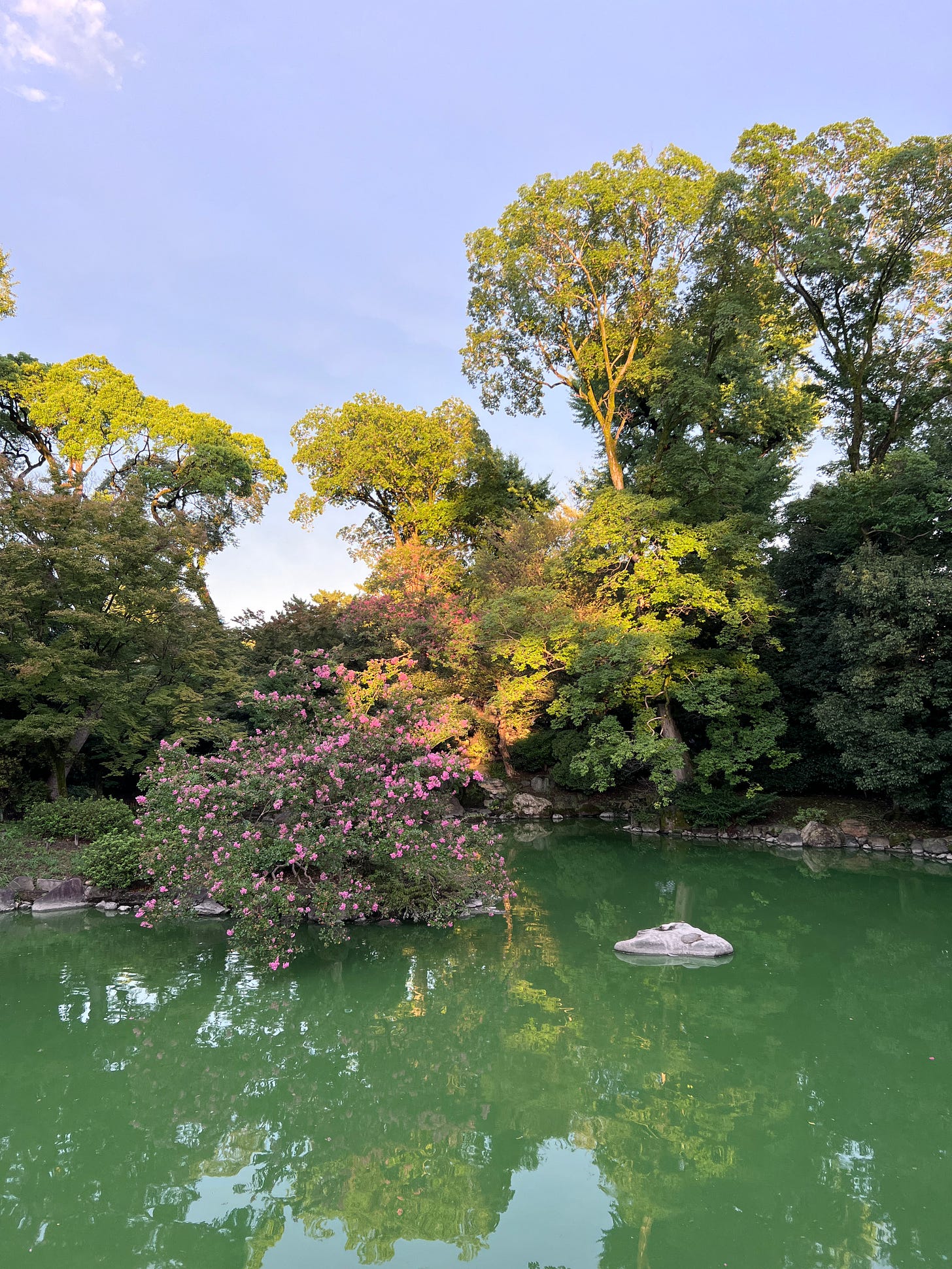
See Instagram | See LinkedIn | See previous 16 posts
Life is short. And we want to make it count.
But we end up doing more and wanting more to no end.
This Saturday, September 7, is the International Day of Clean Air for Blue Skies. Air pollution has been a cause close to my heart, having lived it as a family which led to my eager push on this advocacy issue since 2019. We moved from Kathmandu to Kuala Lumpur to escape toxic air when my eldest child was just four.
Click for full version of my 2023 OpEd in the Straits Times - Tiny Lungs, Hefty Price
2023 blog piece for Capita - Raising Our Voices as Mothers: Our Climate, Our Children’s Future
2023 advocacy brief on air pollution in early childhood, jointly developed by ARNEC and Vital Strategies
2019 publication in the ARNEC Connections - Air pollution and early childhood in Asia-Pacific (page 12)
It gives me hope to see pockets of efforts here and there and the growing momentum regionally and globally. But air pollution remains hard to tackle as it cuts into our fundamental trust and reliance on today’s economic development model.
So what’s the alternative?
We speak of saving the Earth,
yet our hearts race for the next shiny thing,
the newest gadget that glows in the dark of desire.
We hold the latest iPhone in our hands,
but where does the old one rest?
Is it cradled in the arms of recycling,
or does it linger in the shadows, forgotten?
The stores whisper, "Less is more,"
but their shelves overflow with the weight of excess,
new treasures wrapped in the guise of necessity,
each season birthing another fleeting must-have.
Recycled bags, wooden furnitures, electric cars—
they’re the fashion of the mindful,
yet still, they are things,
born from the same hunger for more.
Do we dash to replace what we have,
tossing the old in the name of the new?
Or do we pause, breathe, and ask ourselves,
in the quiet of our longing:
Do we truly need more,
or simply less?
-Rewritten with thanks to the help of ChatGPTWant Not, Waste Not
Vaclav Smil, author of “Grand Transitions: How the Modern World Was Made” (2021) called for significantly stopping wasteful levels of consumption.
In his interview article on Want Not, Waste Not:
“You need two tons of steel and plastic and glass to make that (electric) car. You may have digital doodahs in that car, you may even be watching TV while you are driving the car, but the car is composed of two tons of material.”
“China has been trying to reach the American level of consumption (Americans at over 250 gigajoules per capita, China 95, Japan <150, India 25, sub-Saharan Africa 10).”
“Can the Earth survive China’s success as it aspires to American levels of consumption? The smaller families become as they move up the prosperity chain, the more they consume. Less becomes more.”
“We could consume so much less and save so much more. Less is more: That should be the mantra of mass adaption.”
“Instead of focusing solely on emissions, which are downstream, we should look upstream to curb wasteful consumption. Our greatest hope is to finally realize how wasteful we are.” - Vaclav Smil, Czeck-Canadian Scientist
So What Gives?

Large systemic change takes time. I came to realize that there is immense power in the shifts at a person-to-person individual level too.
先苦后甜 in Chinese means enduring bitterness first, savoring the sweetness later. Yes, compound interest works. Work hard, suffer now so you can enjoy later as I have been told growing up.
But does it hold up all the time?
Know your enough. Perhaps, there comes a point where each one of us can learn to just pause and savor the sweetness of everyday life as our journey unfolds, to redefine what ‘more’ truly means, to realize when letting go serves us best - and to find contentment in just settling and enjoying this very moment. Nothing more, nothing less.
See below links for more on ‘less is more’ and ‘do nothing’ to find the right balance in life:
8-part series on Doing Nothing in the Money and Meaning Substack by
Less is More 1-min video by Dairik Amae, Kyoto Tea Master, for the Loss and Damage Collaboration’s Climate-Wellbeing Project
Taoism Reimagined Substack by
. Week-by-week analysis on the philosophies of Laozi and paradoxical stories of Chuang Tzu (Zhuang Zi), highlighting the power of letting go preconceived notions, embracing flexibility for a harmonious flow of lifeThe self-care delusion and Is Obsession a Superpower or a Death Knell? by
, Founder of the Good Life Project and Awake At the Wheel Substack Author
We can have it all. But maybe not everything, everywhere all at once.
See Instagram | See LinkedIn | See previous 16 posts





"Do we truly need more, or simply less?" This reminds me that, sometimes, or perhaps most often, we are very much in conflict with ourselves. We cannot help it. This fundamental fact about us can make all meaningful and intentional changes hard to practice. But it is always good to have this reminder with us.